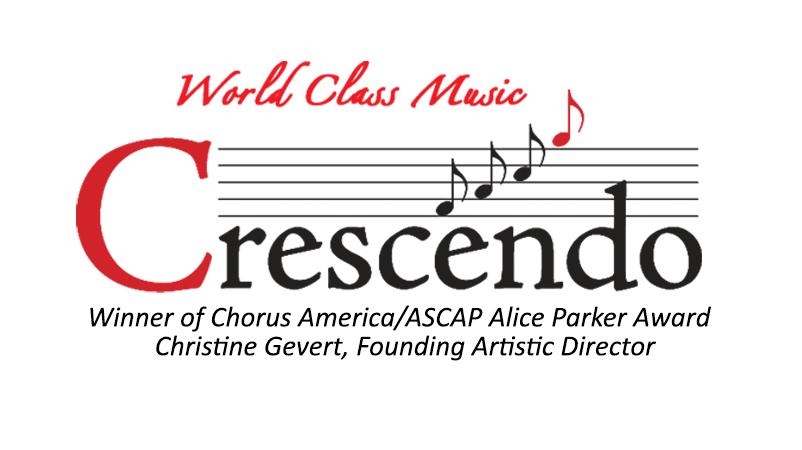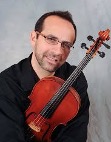In Search of the Bridges
Recorded: Friday, April 28, 2023 at 7:30 pm
Trinity Church,
Lakeville, CT
Performers:
Nadia Aguilar and Jordan Rose Lee, Sopranos
Igor Ferreira, Tenor and Percussion
Jermaine Woodard Jr., Baritone
Gonzalo Cortés, Flute, Quena, Tarka, Semi-Toyo
John Myers, Clarinet and Guitar
Carlos Boltes, Viola and Charango
Michelle Horsley, Piano and Organ
Crescendo Chorus (Section Leaders marked with *)
Sopranos Nadia Aguilar*, Gaile Binzen, Donna Castaner*, Kathy Drake, Jordan Rose Lee*, Margie O’Brien*, Sarah Melcher, Roberta Roll, Emma Sisk, Barbara Wolkowitz
Altos Traudi Chiaravalotti, Elizabeth Gerbi*, John-Arthur Miller*, Susan Mullins, Martha Nesbitt, Susan Pettee, Max Rook*
Tenors Igor Ferreira*, Gordon Gustafson, Matthew Kreta*, John Laporta*, Alex O’Neill*, Peter Perkins*
Basses Jim Barrett*, Brian Farrell, Tivon Hall-Love, Joseph Klebanoff*, Tom Schindler, Bruce Weinstein, Michael Wise, Jermaine Woodard Jr.
Christine Gevert, Direction
Program
Spiritual, Arr. Nathaniel Dett (1882-1943) – Let us cheer the weary traveler
For chorus a cappella
Spiritual, Arr. Nathaniel Dett – Deep River
For chorus and soprano solo (Jordan Rose Lee)
The performance of this piece has been dedicated to the memory of Charles Breneman Buchanan.
Anonymous, Spain (17th cent.) – Por la puente, Juana (Cross over the Bridge, Juana)
For chorus, soli and instruments
Ysaÿe Barnwell (b. 1946) – We Are
For chorus and baritone solo (Jermaine Woodard Jr.)
Nathaniel Dett – Listen to the Lambs
For chorus and soprano solo (Nadia Aguilar)
Manuel Ponce (1882-1948) – Estrellita (Little Star)
For soprano solo (Nadia Aguilar) and piano
Anonymous (Bolivia), Arr. Jesús Ochoa – He venido a despedirme (I’ve come to say good bye)
For upper voice chorus and instruments
Spiritual – Swing Low, Sweet Chariot
Audience Sing Along
Nathaniel Dett – The Chariot Jubilee
For chorus, tenor solo (Igor Ferreira), and organ
The performance of this piece has been dedicated to the memory of Charles Breneman Buchanan.
** Intermission **
Don Macdonald (b. 1966) – The Bridge Builder
For chorus a cappella
John Myers (b. 1951) – 1. I Am the Bridge from “In Search of the Bridges”
World Premiere, Jan. 2023 For chorus, soli and instruments (soprano Nadia Aguilar, baritone Jermaine Woodard Jr.)
Florence B. Price (1887-1953) – The Moon Bridge
For upper voice chorus and piano
John Myers – 2. Swinging Bridge from “In Search of the Bridges”
World Premiere, Jan. 2023 For chorus, solo soprano (Jordan Rose Lee), and instruments
Collective Improvisation on a poem by Emma Sisk, adapt. Tivon Hall-Love – What a Bridge Means to Me
Speakers (Emma Sisk, Nadia Aguilar, Jermaine Woodard Jr.) and vocal percussion
The performance of this piece has been dedicated to the Sisk Family, and Teachers and Mentors of Emma Sisk, all of whom have been her bridge to new experiences in her life, and who have been her bridge to new ideas.
Mark Sirett (b. 1952) – The Pierless Bridge
For chorus, baritone solo (Jermaine Woodard Jr.), and piano
John Myers – 3. On Immigration (Prageeta Sharma) from “In Search of the Bridges”
World Premiere, Jan. 2023 For chorus and instruments
Gustavo Cerati (1959-2014), Arr. Camilo Lagomarsino – Puente (Bridge)
For chorus and instruments
John Myers – 4. Behind my Voice from “In Search of the Bridges”
World Premiere, Jan. 2023 For chorus, solo tenor (Igor Ferreira) and instruments
Learn More About All of the Performers
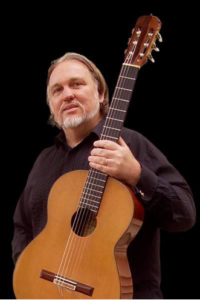
“In Search of the Bridges”, was commissioned by Crescendo, and finished January 2023. The composer, Dr. John E. Myers, holds a PhD from the University of Maryland at Baltimore, a MM from Howard University, and a BA from Towson State University. Dr.
Myers is a composer, performer, media developer, and author, and has a broad range of activities that reflect his expanding interests and areas of professional engagement. He often performs as a guitarist, either as a soloist or in ensembles, playing jazz and Western classical music. Since 1987 Dr. Myers is a Professor of music, electronic arts, and cultural studies at Bard College at Simon’s Rock, and directs the Simon’s Rock Jazz Ensemble. His extended composition for Crescendo chorus, narrator, and instrumental ensemble “The West Lake Cycle” was awarded the Chorus America/ASCAP Alice Parker Award in 2014. His postgraduate work was supported by the National Endowment for the Humanities, the Committee on Scholarly Communication with the People’s Republic of China, and the Massachusetts Foundation for the Humanities. In April 2003, working with Swiss artist Etienne Delessert and Alice Myers, he created a series of wide-screen (30 X 60 foot) digital animations for live performances by the Atlanta Symphony Orchestra of Ravel’s Ma mère l’Oye. They created an interactive DVD computer installation for an exhibit at the Visual Arts Museum at the School for Visual Arts in New York City in the Fall 2003. His compositions appear on several CDs, including Look In, Jazz at the Rock, Volumes I-IV and in various multimedia productions. John also did the Lingo programming for Tabla:
A Journey into Eastern Percussion, an instructional CD-ROM program exploring rhythmic techniques and form in the classical music of North India (AIM Records, 2003), and for The Virtual Jury (1997), an online interactive role-playing program based on the circumstances of the Unabomber trial. In 1994, John was assistant sound designer and guitarist for Louis Cat Orze: The Mystery of the Queen’s Necklace (an Interactive Adventure in the Court of Versailles), a CD-ROM program (IVI Publishing, Minneapolis, 1995). Among his publications are: Look In (audio CD, Jungsoul, 2004) features his original jazz compositions and performances on guitar, clarinet, and electronic instruments; Way of the Pipa: Structure and Aesthetics in Chinese Lute Music, Kent State University Press (1992); Articles in Yinyue Yishu, Soundboard, Jazz Research Papers, College Music Society Newsletter, and other journals; Entries for the Asian-American Encyclopedia, Encyclopedia of the Ancient World, The Fifties in America, the Garland Encyclopedia of World Music, and many others.
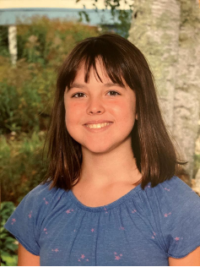
Emma Jean Sisk is a 7th grader at Salisbury Central School in Lakeville, CT. A big sister to two younger brothers, she is imaginative and has always flourished in creative play. Emma is an avid birder who is at home exploring nature, and she has always enjoyed exploring new art forms as well. Singing is one of her passions, and in addition to working with Crescendo, she works with a private voice instructor, sings in the middle school chorus at school, and has performed in many local musical theatre productions. When she is not singing, she draws, reads, and writes stories, song lyrics, and poetry. Emma has always been quite the storyteller; writing brings her joy, and most recently she has taken instruction and inspiration from the poetry and creative writing enrichment classes she takes after school.
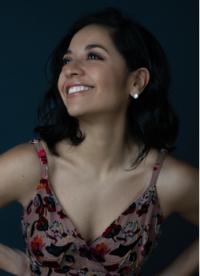
Nadia Aguilar is a soprano born in Torreon, Mexico. Ms. Aguilar started her voice studies at the School of Music and Dance in Monterrey, Mexico. She has a bachelor’s degree in music from The Hartt School and a master’s degree from The University of Connecticut.
Her operatic roles include Elle in La Voix Humaine by Poulenc, Euridice in Gluck’s Orfeo ed Euridice, Mrs. Fiorentino in Kurt Weill’s Street Scene, The Queen of the Night in Mozart’s The Magic Flute, Rosina in Rossini’s Il Barbiere di Siviglia, Gretel in Humperdinck’s Hansel and Gretel, and Musetta in Puccini’s La Boheme. Nadia has a broad oratorio repertoire, including Handel’s Messiah, Faure’s Requiem, and Vivaldi’s Gloria and Magnificat. She is also at home performing traditional and popular Latin American music, and dancing salsa.
Nadia is a current DMA student at the University of Connecticut, where she holds a Teaching Assistantship. She is currently an adjunct professor at The Hartt School, where she teaches English, Italian, and French IPA & diction.
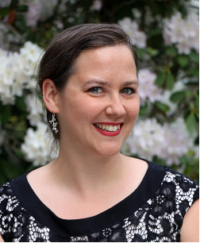
Jordan Rose Lee, soprano, has been a soloist for many East Coast ensembles, such as Connecticut Lyric Opera (Young Artist Program), Gaudeamus, St. John’s Choir, St. Andrew’s Music in the Nave, and Stockbridge Festival Chorus. She has performed recitals with special interest in American Art Song, and promoting the work of women composers.
Jordan received a Bachelor of Music degree from Western Connecticut State University, where she was featured as a soloist with the Concert Choir and Chamber Singers, and played several leading roles in the Opera Ensemble’s productions. She was the singer of choice for the composition students at WCSU, where she debuted several pieces. She has been a soloist and section leader for Crescendo since 2007, and she is the soprano section leader and soloist for South Church Chancel Choir in New Britain, CT.
Recently Jordan completed her studies in Speech and Language Pathology at Southern Connecticut State University, and currently works with young children and families with communication disorders.
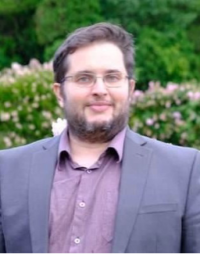
Brazilian-born tenor and pianist Igor Ferreira received his master’s degree in Piano Performance from the University of Hartford, under tutelage of Prof. David Westfall and Prof. Frederic Chiu. As a pianist, he performed in many international venues and festivals including the inaugural concert of the Oficina de Artes Nárcio Rodrigues. He has been featured in the TV ALMG live recorded show Segunda Musical in 2008, 2009 and 2011. Also, he played on the 90th birthday recital of Brazil’s acclaimed composer, Edino Krieger (1928-2022), who was prestigiously in the audience. As a lyrical tenor, Mr. Ferreira was recently a soloist with the Manchester Symphony Orchestra and Chorale (directed by Carolina Flores) performing N. Dett’s Chariot Jubilee, J. N. Garcia’s Requiem, and M. Martines’ Dixit Dominus, and with the Hartt Symhony Orchestra and Hartt Choirs, performing the J. Haydn’s Paukenmesse, directed by David Trecekking. Additionally, he performed in the Hartt Chamber Chorale (directed by Prof. Edward Bolkovac) as the tenor section leader. For seven years, he was a tenured member of the Coral Lírico de Minas Gerais (CLMG), which is the top-tiered professional statal opera choir of Minas Gerais, housed in Palácio das Artes alongside the Orquestra Sinfônica de Minas Gerais. He performed in many operatic super-productions including Carmen, Lucia de Lammermoor, Porgy and Bess, La Traviata, Rigoletto, Der Fligender Höllander, Norma, Pagliacci, L’Elisir d’amore and more. He performed with this choir at the inaugural concert of the Sala Minas Gerais, that houses the Orquestra Filarmônica de Minas Gerais. He was part of the A Cançāo das Iluminuras, an early-music ensemble, and also of the Octeto da Fundação de Educação Artística, a male voice octect. Currently, Mr. Ferreira serves as faculty at The Hartt School (University of Hartford) and at the Suzuki Music Schools (Westport). He continues his studies with Benjamin Rauch.
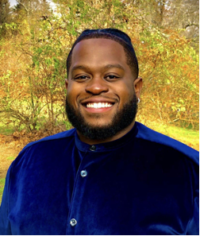
Jermaine Otis Woodard Jr. – Virginian-baritone & recording-artist – is devoted to an eclectic professional performing career spanning choral, musical-theatre, oratorio, opera, contemporary-inspirational, jazz, liturgical, and sacred music. Jermaine, a Hartt School alumnus, serves on the roster of: Voce, Inc (Signum records); CONCORA; Voices of Concinnity; Cathedral of Saint Joseph’s Schola Cantorum/Cathedral Quartet; premier recording ensembles Composer’s Choir and Vox Futura, Handel & Haydn Society, and the newly-emerged Voices of Hartford. Jermaine is also one of the background vocalists for Javier Colon’s band (NBC’s “The Voice” first winner). Woodard serves as Baritone section-leader/soloist at Asylum Hill Congregational Church, Crescendo, and The Hartford Chorale; also serving on the board of governors with The Hartford Chorale and Consonare. Jermaine cantors at Sacred Heart Parish of Bloomfield, University of Saint Joseph’s, Cathedral of St. Joseph’s, and Holy Family Passionist Retreat Center (West Hartford); and has performed with Berkshire Opera Festival, Hartford Symphony Orchestra, Worcester Music, Panopera, Opera Theatre of CT, Hartford Opera Theatre, and Opera Connecticut. In December 2020, Jermaine was offered his first non-equity contract with Playhouse on Park West Hartford in a film-adaptation of “All is Calm: The Christmas Truce of 1914”. Jermaine recently celebrated an artistic and career milestone inaugurating a leading role, for a regional theater house contract, for a new musical premiere. Woodard currently resides in Hartford, CT.
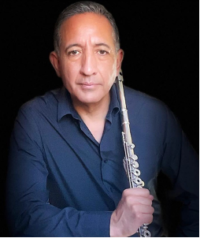
Gonzalo Cortés, flutes. A native of Chile was formerly Principal Flute of the Classical Orchestra of Santiago, Chile. He studied with Alberto Harms at the Catholic University of Chile and earned an Artist Diploma from Duquesne University with Robert Langevin, Principal Flute of the New York Philharmonic, as his teacher.
As a soloist and orchestral musician, he has toured South America and the USA with different ensembles such as the Simon Bolivar Orchestra, Orquesta Sinfónica de Chile, Classical Orchestra of Santiago, Fargo-Moorhead Symphony Orchestra, Chorus Angelicus and Gaudeamus, UCONN Opera Orchestra and the Symphony of South East Texas. He has performed at numerous festivals and venues such as the Orford Arts Centre’s Academy of Music in Canada, Primer Festival Internacional de Flauta in Rio de Janeiro, the Western Slope Music Festival in Crested Butte, Colorado, Semanas Musicales de Frutillar, Chile, International Festival of Arts and Ideas, New Haven, CT, The Phoenicia International Festival of The Voice, Smithsonian National Museum of Natural History, Jorgensen Center for the Performing Arts among others. In addition to Mr. Cortés’ classical training pursuit, he is a proponent of World Music, particularly flutes from around the world. He has recorded with the internationally acclaimed Chilean folk group Inti-Illimani as well as the Choral Arts Society of Washington, DC for the Naxos label. In 2006, Gonzalo released his CD, Valle, featuring an amazing collection of original music composed and performed by him. He is also a skillful improviser, he has explored other musical genres such as flamenco and Latin jazz. Currently he teaches flute at Trinity College, the Community School of the Arts at the Mansfield Parks and Recreation, Miss Porter’s School, and the Jazz and Popular Music sector of The Hartt School Community Division. He is the founder and Artistic Director of the Hartford Flute Ensemble, Atacama Ensemble and a member of Kalmia Ensemble and Blue Madeiras
Carlos Boltes, charango and viola
Carlos was born in Santiago de Chile, where he began his musical studies learning the charango from his brother Giovanni Vaccani, later he joined the Chilean group Barrocco Andino with which he made numerous tours of Chile and South America. He has a Bachelor’s degree from the Universidad Católica de Chile and a Master’s degree from Carnegie Mellon University in viola performance. His main teachers have been: Enrique López, Atar Arad and Larry Dutton (Emerson String Quartet). He has been the principal violist of the Santiago Municipal Theater Chamber Orchestra and the Virtuosi Chamber Orchestra of Connecticut and has recorded for Naxos, Brioso and CBS Records. In 2000 he formed the Duo Alturas together with Canadian guitarist Scott Hill. In these 20 years they have released more than 50 works written for the Duo and numerous ensembles. Among them is the Elqui Trio where they join forces with the Flute player and expert in Andean wind instruments, Gonzalo Cortés. Last year they formed a trio ADAA with the notable French pianist and singer Alexandra Aubert, with whom they have toured Chile and the United States.
Mr. Boltes has been awarded an Individual Artist Scholarship from the Boston Fund and a Performance Scholarship from the Andes Foundation and also received the Connecticut “Latino de Oro” Award 2010. With the Duo Alturas he has won numerous awards: First Prize at the 2006 New England International Chamber Music Competition to the 2010 CMA / ASCAP Award for Innovative Music Programs. They recently won the Jury Award at the “World Folk Vision 2020” as the “Best Latin Band” and they were the winners among 3950 participants from 115 countries. Mr. Boltes in addition to his career as an interpreter has dedicated himself to teaching, 10 years in the Community Division of the University of Hartford, 4 years in Intake Academy teaching charango, viola and violin and in numerous festivals in Latin America, Brazil, Eleazar de Carvallo , Classic Bolivia in La Paz. Calbuco Summer Festival and Mancera Festival in Valdivia, Chile. He has taught numerous Master Classes in the United States, Central and South America and Europe.
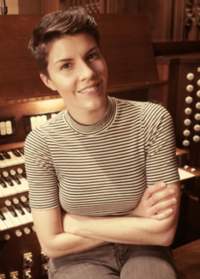
Michelle Horsley, organ and piano, is the Director of Music at Trinity Episcopal Church in Hartford, Music Director for The Choir School of Hartford (RSCM), and Dean of the Greater Hartford Chapter of the American Guild of Organists. Michelle holds degrees in Organ Performance (BM) and Sacred Music (MM) from Stetson University and Duquesne University, where she studied with Boyd Jones and Ann Labounsky. Originally from Florida, Michelle has also lived in Spain, Germany, and Mexico. After completing her graduate work, she took the position of Organist at Seattle First Baptist Church. There she also served as the accompanist for Diverse Harmony, the nation’s first and largest queer-straight alliance youth choir, a 50- voice chorus as well as an auditioned, a capella, 16-voice ensemble called Spectrum. She was the main accompanist for the combined youth choir for the GALA Convention of 2016 in Denver, CO. Michelle also served as a board member on the Seattle Chapter of the AGO.
In 2017 Michelle moved to Connecticut, and has since served as the Director of Music at St. Matthew Lutheran Church (ELCA) of Avon, CT, and as Director of Music at South Church in New Britain and as the Artistic Director of the renowned South Church Music Series. She also serves on the Jolidon Grant Sub-Committee (funding for organ study and diverse musical programming throughout New England), and works as the Associate Music Director for the West Hartford Summer Arts Festival. Michelle does freelance work as a recording artist, guest organist/pianist, and music educator throughout Connecticut. She composes, teaches, leads workshops, and performs around New England, and she resides in Hartford’s West End. More information about Michelle can be found at www.MichelleHorsley.com
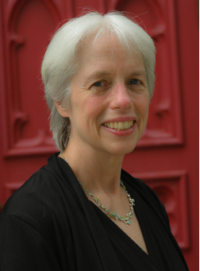
Christine Gevert, virginal, holds a master’s degree in organ and early music performance from the Hochschule für Musik und Theater, Hamburg, Germany. After earning a bachelor’s degree in music theory from the Conservatorio Nacional de Chile, she studied choral and orchestral conducting in Berlin and harpsichord in London. She has taught at the Berliner Kirchen-musikschule, the Universidad de Chile, and the Pontificia Universidad Católica in Santiago, Chile.
While conducting and performing in Europe and South America, she also recorded for Carpe Diem and Alerce. She has led master classes and workshops in early music, harpsichord, and baroque vocal technique at music festivals in Germany, Chile and the U.S., and has taught historic keyboards at the Berlin Church Music School in Germany, and locally at Bard College at Simon’s Rock. Ms. Gevert has appeared at the Washington Early Music Festival, the Berkshire Choral Festival, the Fringe concerts of the Boston Early Music Festival, and the Amherst Early Music Festival.
In recent years she has given solo harpsichord recitals at the Early Music Festival in Narol, Poland, at the historic Auditorium Wanda Landowska near Paris, at the Metropolitan Museum of Art, and the Brooklyn Beat Festival. She performed at the International Festival of American Renaissance & Baroque Music at the Chiquitan Missions in Santa Cruz, Bolivia. She has authored and published more than eighty historical basso continuo realizations with the Swiss music publisher, Amadeus Verlag. The founder and artistic director of Crescendo and her own baroque ensemble Les Inégales, Christine is currently music director at Trinity Episcopal Church, Lime Rock, CT.
Crescendo and its programming
Crescendo is a national-award-winning music performance organization. For more than fourteen years, Crescendo has presented concerts year-round in northwestern Connecticut, the Berkshires, and the mid-Hudson Valley of New York. The organization is based at Trinity Church Lime Rock in Lakeville, CT.
Founder and Artistic Director, Christine Gevert, is celebrated for her innovative approach to programming and performance. Crescendo’s audiences are often rewarded with programs of rarely-heard and newly discovered works. Often Ms. Gevert uses original manuscripts to make her own performing editions for chorus, soloists and orchestra because there are no existing published editions. Frequently our programs feature early and contemporary music works alongside each other, creating a contrast for the listener. Eight new works have been commissioned for our chorus and vocal ensemble. Crescendo has presented ten U.S. premieres.
Crescendo’s innovative programming relies on a local base of dedicated and talented auditioned amateurs and professionals who make up the Crescendo Chorus and Crescendo Vocal Ensemble. Crescendo has its own Period Instrument Orchestra and Andean Ensemble, comprised of professionals from New York, Boston, Philadelphia, Washington DC and Hartford. These instrumentalists and the internationally recognized soloists who regularly collaborate with Crescendo bring the performances to a level comparable to the best ensembles in the country. Instrumental music ensembles and concerts with vocal soloists have been part of Crescendo’s programs since the beginning. Some of the performers have been: Julianne Baird (Philadelphia) soprano, Nicholas Tamagna (New York) countertenor, Peter Sykes (Boston) and Władysław Kłosiewicz (Warsaw, Poland), harpsichord, Chris Bellsucio (Boston), natural trumpet, Tricia van Oers, recorder, I Fagiolini Renaissance Vocal Ensemble (London, UK), L’Orchestre de Chambre Francaise (Paris, France), Peter Lekx (Montreal) baroque violin, Duo Alturas (Hartford) charango, viola and guitar, and Duo Les Inégales, traverso and harpsichord.
We are strongly committed to educational outreach―to our own singers, our audiences and local students. Talented local high school singers and young musicians are coached by Ms. Gevert as part of our “Young Baroque Artist Program”, and often play a part in our performances. She and members of the chorus visit local schools to work with students.
Artistic Director Christine Gevert is celebrated for her innovative approach to programming and performance: In 2014 Crescendo won the prestigious Chorus America / ASCAP Alice Parker Award. Today’s programming reflects some of the diversity and scope of music that Crescendo is known for.
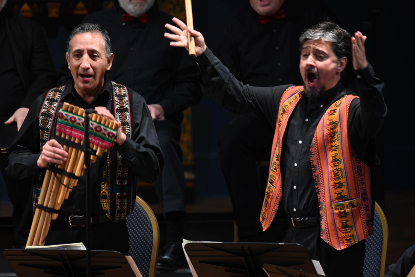
Musicians of Crescendo’s Latin American Ensemble
About the Performance
About the Music, Texts and Translations
In Search of the Bridges – North and South American 20th century and contemporary choral works, including a world premiere by John Myers
The program is based on the idea of music as a bridge between some of America’s important cultures: African American, Latin American, Appalachian/Indigenous, and South Asian. The repertoire includes the world premiere of a composition commissioned by Crescendo: composer John Myers wrote a four-movement-work “In Search of the Bridges” for chorus, soloists and instrumental ensemble. Based on the poetry of four living female poets, it is a collage and blend of some of the specific styles and art forms that distinguish these cultures. It includes traditional elements of Western classical music, Cuban salsa, Andean themes, South Asian classical music and dance, and rap-like rhythmic elements. This collaboration between the composer, Bard College at Simon’s Rock, and Crescendo, intends to bridge ethnical, political, generational, and religious division, and transcend the arbitrary boundaries that separate us from each other.
On the program are also choral arrangements and compositions by the notable African American composer Nathaniel R. Dett, a pioneer, innovator, and trailblazer in American music at the beginning of the 20th century; Florence Price, the first female composer of African descent to have a symphonic work performed by a major national symphony orchestra; Ysaÿe Barnwell, a composer, arranger, author, actress, and former member of the Black women’s a cappella ensemble Sweet Honey In The Rock; Gustavo Cerati, an Argentine musician, singer-songwriter and record producer, who gained international recognition for being the leader, vocalist, composer and guitarist of the rock band Soda Stereo; and works by other composers and arrangers from North and South America. A collective creation by two of Crescendo’s young artists, our soloists and the chorus, it brings together words and rhythm, and gives a voice to the younger generation – creating another bridge. The wide range of styles – classical, folk, rap, rock, pop is meant to open our own perception of what music is worth to be listened to.
Spiritual, Arr. Nathaniel Dett (1882-1943) – Let us cheer the weary traveler For chorus a cappella
Refrain: Let us cheer the weary traveler, Cheer the weary traveler,
Let us cheer the weary traveler, Along the heavenly way.
I’ll take my gospel trumpet, And I’ll begin to blow,
And if my Saviour helps me, I’ll blow wherever I go.
Refrain: Let us cheer…
And if you meet with crosses And trials on the way,
Just put your trust in Jesus, And don’t forget to pray. Refrain: Let us cheer…
Spiritual, Arr. Nathaniel Dett – Deep River For chorus and soprano solo (Jordan Rose Lee)
Deep river, my home is over Jordan, Deep river, Lord, I want to cross over into campground.
Oh, don’t you want to go, to that gospel feast, That promised land, that land, where all is peace? Deep river, my home…
Anonymous, Spain (17th cent.) – Por la puente, Juana (Over the Bridge, Juana)
For chorus, soli and instruments. On a poem by Lope de Vega.
Por la puente, Juana, que no por el agua. Agora qu´el tiempo con las manos francas del jazmín y rosa compone tu cara
y da a tus cavellos el oro de Arabia,
a tus dientes perlas y a tus labios grana, tu provecho busca: mira que t´engañan de mancebos locos las promesas falsas.
Por la puente, Juana…
No aguardes qu´él mismo con la mano elada marchite las rosas, buelba el oro en plata.
Vas por agua agora desnuda y descalza,
sin ver que los tiempos passan como el agua.
Por la puente, Juana…
Tiene el ynterés una puente larga,
que llega a las Yndias sin llevar armada, paso de discretas y puente que pasan los cuerpos vestidos, enjutas las almas.
Por la puente, Juana…
Si a la primavera de tu edad dorada
en tierras baldías siembras esperanzas, el estío ardiente coxerás turbada arrugas del rostro, del cabello canas.
Por la puente, Juana…
Los papeles tiernos no t´engañen, Juana, que al fin son papeles, plumas y palabras. Si llovieren ojos echiceras ansias,
tápate, en los tuyos que no pase el agua;
Por la puente, Juana…
Y si por ventura sirenas te cantan, a sus dulces versos, los oydos tapa,
porque no ay sonido de bigüela y harpa que yguale al que haze la plata con armas. La puente que digo las tiene a la entrada, agora está abierta, cerrarán, si tardas.
Por la puente, Juana…
(english)
Cross over the bridge, Juana, not through the water.
Now that the day with its open hands of jasmine and rose soothes your face
and bestows to your locks the gold of Arabia, to your teeth pearls and burgundy to your lips,
your youthful advantage seeks: watch out for the deceptions of wild young men with false promises.
Cross over the bridge, Juana, not through the water. Do not expect that the same one with the frozen hand that withers the roses, should turn gold into silver.
Through water now you drift unclothed and unshod without seeing that the days pass by like water.
Cross over the bridge, Juana, not through the water.
Of great value is a long bridge,
that stretches to the Indies without carrying a navy,
[a] pathway of the modest and [a] bridge crossed by the dressed bodies, with gaunt souls.
Cross over the bridge, Juana not through the water.
If, in the spring of your golden age in barren lands you sow hopes,
in the burning summer you will plough,
distraught, furrows on your face, white strands in your hair.
Cross over the bridge, Juana, not through the water.
Do not let the tender notes deceive you, Juana,
in the end they are only parchment, quills and words. If eyes flood with beguiling yearnings,
hide yourself, and do not let your eyes well up;
Cross over the bridge, Juana …
And if by chance the mermaids sing to you their sweet verses, cover your ears,
for there is no sound of the vihuela and harp
that equals their sound of silver forged by weapons. The bridge of which I speak keeps them at the entrance, now it is open, though they will close it, if you delay.
Cross over the bridge, Juana …
Translation by Mileta Roe, Bard at Simon’s Rock College
Ysaÿe Barnwell (b. 1946) – We Are For chorus and baritone solo (Jermaine Woodard Jr.)
For each child that’s born a morning star rises, and
sings to the universe who we are. We are our grandmother’s prayers. We are our grandfather’s dreamings. We are the breath of our ancestors. We are the Spirit of God.
We are Mothers of Courage And Fathers of Time
We are Daughters of dust And the Sons of great visions.
We’re Sisters of Mercy And Brothers of Love
We are Lovers of Life and The Builders of Nations. We’re Seekers of Truth And Keepers of Faith
We are Makers of Peace And the Wisdom of Ages.
We are our grandmother’s prayers… For each child that’s born…
We are one.
Nathaniel Dett – Listen to the Lambs For chorus and soprano solo (Nadia Aguilar) Listen to the lambs! All a-crying!
He shall feed his flock like a shepherd and carry the young lambs in his bosom.
Ah – Listen to the lambs! All a-crying! Amen.
Estrellita by Manuel Ponce (1882-1948) For soprano solo (Nadia Aguilar) and piano
Estrellita – Del lejano cielo,
Que miras mi dolor, que sabes mi sufrir. Baja y dime si me quiere un poco Porque yo no puedo sin su amor vivir. Tú eres, estrella, mi faro de amor,
Tú sabes que pronto he de morir. Baja y dime…
(english)
Little star – From the distant heaven, You see my pain, you know how I suffer.
Come down, and tell me If he loves me a little, Because I can’t live without his love.
You are, star, my beacon of love,
You know that soon I will die. Come down and tell me…
Anonymous (Bolivia), Arr. Jesús Ochoa – He venido a despedirme (I’ve come to say good bye)
For upper voice chorus and quena, charango, guitar, bombo
A Venezuelan choral conductor, composer and arranger, Jesús Ochoa (b. 1963) was a member of the Schola Cantorum de Venezuela. He conducts several choral ensembles and has a good knowledge of popular music. His compositional language follows a traditional path and he is widely recognized as an arranger. He studied choral conducting with Alberto Grau and Ana Maria Raga and obtained his degree at the University of the Arts in Caracas.
This composition is a Chilean ‘Cueca,‘ which is a dance found in many South American countries that is derived from the Spanish ‘Jota’ and contains several elements from the ‘Fandango.‘ Because of its melancholic character, this ‘Cueca’ is thought to have derived from the Peruvian ‘Yaraví’ and it comes from the province of Sucre and was composed in the times of the Chaco war (that occurred between Bolivia and Paraguay in 1932–1935). Most of the authors who composed texts and popular tunes in this period are anonymous. The instruments that accompany the ‘Cueca’ are generally guitar, bombo and charango. Source: Editorial notes by Maria Guinand in edition 2.502, Carus-Verlag, Stuttgart.
No te extrañes mi amada
si a deshoras vengo a cantar, y te pido me perdones
si tu sueño vengo a turbar. He venido a despedirme porque pronto me voy a ir, y te juro que como hombre mi promesa voy a cumplir.
No creas que por mi ausencia yo te llegue a olvidar,
adiós pues amada mía duérmete y vuelve a soñar.
(english)
Do not wonder my love
if I come to sing after hours, and I ask you to forgive me if I disturb your sleep.
I’ve come to say goodbye because I’m leaving soon, and I swear that as a man I will fulfill my promise.
Do not think that in my absence I will forget you,
goodbye then, my love,
go back to sleep and dream again.
African-American Spiritual. Wallace Willis (1820?-1880?). Arr. Christine Gevert – Swing Low, Sweet Chariot Audience Sing Along Swing low, sweet chariot, coming for to carry me home! (twice)
I looked over Jordan, and what did I see? Coming for to carry me home!
A band of angels coming after me, coming for to carry me home. Swing low, sweet chariot…
Nathaniel Dett – The Chariot Jubilee For chorus, tenor solo (Igor Ferreira), and organ
Tenor: Down from the heavens, a golden chariot is swinging …Comes God’s promise of salvation. Hallelujah, hallelujah! Swing low, sweet chariot, coming for to carry me home. …
Chorus: God made a covenant, for the glory of His grace, thru our Lord and Saviour, Jesus Christ;…
Swing low, sweet chariot, coming for to carry me home. … His gospel flowing free, like a chariot swung from heaven, shall bear the true believer home, safely home. Swing low, sweet chariot, sweet cov’nant of salvation, swing low, O swing low!
Salvation (Tell it, tell it!), sweet cov’nant of our Lord, I shall ride up in the chariot in that morning!
Tenor: He who doth on Christ believe (Chorus: Swing low, sweet chariot!) Tho’ he were dead, yet shall he live. (Sweet chariot, swing low!) King Jesus triumphed o’er the grave, (Swing low, sweet chariot!) His grace alone can sinners save! (Sweet chariot, swing low! Hallelujah!). Chorus: Salvation (Tell it!), sweet cov’nant of our Lord,… Tenor: Swing low, sweet chariot, sweet cov’nant of God’s grace! Chorus: Coming for to carry me home. O hallelujah!
Don Macdonald (b. 1966) – The Bridge Builder
For chorus a cappella. Poem by Will Allen Dromgoole .
An old man going a lone highway, Came, at the evening cold and gray, To a chasm vast and deep and wide.
Through which was flowing a sullen tide The old man crossed in the twilight dim, The sullen stream had no fear for him;
But he turned when safe on the other side And built a bridge to span the tide.
“Old man,” said a fellow pilgrim near,
“You are wasting your strength with building here; Your journey will end with the ending day,
You never again will pass this way;
You’ve crossed the chasm, deep and wide, Why build this bridge at evening tide?”
The builder lifted his old gray head;
“Good friend, in the path I have come,” he said, “There followed after me today
A youth whose feet must pass this way. This chasm that has been as naught to me To that fair-haired youth may a pitfall be; He, too, must cross in the twilight dim;
Good friend, I am building this bridge for him!”
“In Search of the Bridges”, was commissioned by Crescendo, and finished January 2023. The composer, Dr. John E. Myers, holds a PhD from the University of Maryland at Baltimore, a MM from Howard University, and a BA from Towson State University. Dr.
Myers is a composer, performer, media developer, and author, and has a broad range of activities that reflect his expanding interests and areas of professional engagement. He often performs as a guitarist, either as a soloist or in ensembles, playing jazz and Western classical music. Since 1987 Dr. Myers is a Professor of music, electronic arts, and cultural studies at Bard College at Simon’s Rock, and directs the Simon’s Rock Jazz Ensemble. His extended composition for Crescendo chorus, narrator, and instrumental ensemble “The West Lake Cycle” was awarded the Chorus America/ASCAP Alice Parker Award in 2014. His postgraduate work was supported by the National Endowment for the Humanities, the Committee on Scholarly Communication with the People’s Republic of China, and the Massachusetts Foundation for the Humanities. In April 2003, working with Swiss artist Etienne Delessert and Alice Myers, he created a series of wide-screen (30 X 60 foot) digital animations for live performances by the Atlanta Symphony Orchestra of Ravel’s Ma mère l’Oye. They created an interactive DVD computer installation for an exhibit at the Visual Arts Museum at the School for Visual Arts in New York City in the Fall 2003. His compositions appear on several CDs, including Look In, Jazz at the Rock, Volumes I-IV and in various multimedia productions. John also did the Lingo programming for Tabla:
A Journey into Eastern Percussion, an instructional CD-ROM program exploring rhythmic techniques and form in the classical music of North India (AIM Records, 2003), and for The Virtual Jury (1997), an online interactive role-playing program based on the circumstances of the Unabomber trial. In 1994, John was assistant sound designer and guitarist for Louis Cat Orze: The Mystery of the Queen’s Necklace (an Interactive Adventure in the Court of Versailles), a CD-ROM program (IVI Publishing, Minneapolis, 1995). Among his publications are: Look In (audio CD, Jungsoul, 2004) features his original jazz compositions and performances on guitar, clarinet, and electronic instruments; Way of the Pipa: Structure and Aesthetics in Chinese Lute Music, Kent State University Press (1992); Articles in Yinyue Yishu, Soundboard, Jazz Research Papers, College Music Society Newsletter, and other journals; Entries for the Asian-American Encyclopedia, Encyclopedia of the Ancient World, The Fifties in America, the Garland Encyclopedia of World Music, and many others.
John Myers (b. 1951) – 1. I Am the Bridge from “In Search of the Bridges”
For chorus, soprano (Nadia Aguilar), baritone (Jermaine Woodard Jr.), flute, clarinet, viola, piano.
About the text: Baltimore-born and -raised, Carole Boston Weatherford composed her first poem in first grade and dictated the verse to her mother on the ride home from school. Her father, a high school printing teacher, printed some of her early poems on index cards. Since her literary debut with Juneteenth Jamboree in 1995, Carole’s books have received three Caldecott Honors, two NAACP Image Awards, an SCBWI Golden Kite Award, a Coretta Scott King Author Honor and many other honors. Carole received the Ragan-Rubin Award from North Carolina English Teachers Association and the North Carolina Literature Award, among the state’s highest civilian honors. She holds an M.A. in publications design from University of Baltimore and an M.F.A. in creative writing from University of North Carolina, Greensboro. She is a Professor of English at Fayetteville State University in North Carolina.
About the music: The instruments personify the river which flows under the bridge of voices, which form their bridge from the generations of un-named heroes who endured injustice, and carry their strength forward into today and the future. African- American sacred music is the primary stylistic inspiration.
Poem: excerpt from “Remember the Bridge: Poems of a People” by Carole Boston Weatherford.
The bridge is men and women, famous and unknown,
leaving paths of memories, timeless stepping stones.
I follow in the shadows of heroes without names
and keep the faith of elders who lean on hickory canes.
The river to tomorrow is as long as it is wide;
the bridge will get me over, see me to the other side. The past is the foundation, the future the next span.
We’ll bridge the mighty river;
brothers, sisters, hand in hand. 2002.
Remember the Bridge: Poems of a People. New York: Philomel. Printed/used with permission by the author.
Florence B. Price (1887-1953) – The Moon Bridge For upper voice chorus and piano
Composed in 1930, Florence Price’s “Moon Bridge” is part of her set of 44 art songs. Poem by Mary Rolofson Gamble.
The moon like a big, round ball of flame Rose out of the silver bay,
And built a bridge of golden beams, Where the fairies came to play.
I saw them dancing in jewel’d robes On the wavelet’s rhythmic flow,
And I long’d to stand on the magic bridge, In the moonlight’s mystic glow.
But over the sky a veil of mist Thin, soft as a web of lace,
Was drawn, then parted, then came again, With easy, coquettish grace.
And the moon put on a somber mask, And frowned on the rippling wave,
And the beautiful bridge went under the sea, Nor a beam could the fairies save!
I wonder’d if this would end their play, And if, as the bridge went down,
They would lose their jewels so frail and fair, And their queen her diamond crown!
But they glided away in merry mood, To their home in the rosetree’s bowers,
And there they danced on the dewy grass, Till the “wee sma” morning hours.
John Myers – 2. Swinging Bridge from “In Search of the Bridges”
For chorus, soprano (Jordan Rose Lee), and tarka (Andean flute), clarinet in B flat, viola, and piano
About the text: Marilou Awiakta (born 1936 in Knoxville, Tennessee) is a poet whose perspective fuses her Cherokee, Scots-Irish, and Appalachian heritage with experiences of growing up in Oak Ridge, Tennessee, on the atomic frontier. She is internationally known for her poetry and cultural essays. [Lisa A. Mitten, Univ. of Pittsburgh Lib.Copyright 1993 Reed Business Information, Inc.] “Rooted in the stories of the Cherokee Corn Mother, Selu, and of the teacher of hunters, Awi Usdi (Little Deer), these stories, essays, drawings, and poems revolve around the fundamental Indian concepts of respect and balance. Awiakta, who grew up in the postwar community of Oak Ridge, Tennessee, the product of Cherokee and Scotch-Irish Appalachian roots, tells how the stories of Selu and Awi Usdi can be applied in all areas of life, from political activism to interpersonal relations. This wide-ranging collection is occasionally repetitious but offers true insights into Native American philosophies and how to apply them to contemporary problems. For Awaiakta the whole world is alive with the spirit, and the world speaks to the wary in “Song of the Swinging Bridge”.”About the music: The swinging bridge demands respect and flexibility, and harmonies shift to require the singers to keep their balance. The tarka, a Native American flute, echoes across the mountainous environment.
Poem: from “Selu: Seeking the Corn-Mother’s Wisdom” by Marilou Awiakta.
Mind your step. I’m alive! Not steel or concrete—musky sinew. Sunwarm yet damp and pliant in my deepest fiber. I vibrate to your touch, curve to your shape, undulate, sigh beneth your weight.
But… Stomp me—I fling you up. Yank me—I break your stride. Shake me—I swing you up in an arc of fear. Blend your rhythm with mine, so I can bear you safely through the void.
When you reach solid ground look back. I sway gently remembering…
Collective Improvisation on What a Bridge Is to Me by Emma Sisk, adapt. Tivon Hall-Love – What a Bridge Means to Me
Speakers (Emma Sisk, Nadia Aguilar, Jermaine Woodard Jr.) and vocal percussion (chorus)
Emma Jean Sisk is a 7th grader at Salisbury Central School in Lakeville, CT. A big sister to two younger brothers, she is imaginative and has always flourished in creative play. Emma is an avid birder who is at home exploring nature, and she has always enjoyed exploring new art forms as well. Singing is one of her passions, and in addition to working with Crescendo, she works with a private voice instructor, sings in the middle school chorus at school, and has performed in many local musical theatre productions. When she is not singing, she draws, reads, and writes stories, song lyrics, and poetry. Emma has always been quite the storyteller; writing brings her joy, and most recently she has taken instruction and inspiration from the poetry and creative writing enrichment classes she takes after school. Tivon Hall-Love has been a voice and theory student of Crescendo’s Young Artists Program since 2020. This is the first time writing rap for him. He is also a member of the chorus.
What a Bridge Is to Me – By Emma Sisk (April 2023)
A connector of two worlds
A path that was never there before A possibility for exploring
A safer way across
Bridge A bridge looks like an opportunity An adventure
Sleek stepping stones carved by river rapids rushing Creaky wooden balance beams
Your body swaying Back
Rap Version – By Tivon Hall-Love Bridge
A connector of two worlds
A path that didn’t exist before Creating new ways to explore.
Bridge
A safer way to cross
To look for opportunities To unite new communities.
Forth
And
Bridge
Is a path into adventure
In the cool, whistling wind Birds calling
“Chicka dee dee dee dee dee!” Strong structures standing Holding cars and people
Tons and Tons Honking
Bridge A bridge is a chance To see a new place
To get a new perspective
The footfalls of fellow explorers on your journey You don’t
Have
To choose A side
Bridge A bridge is a handshake An agreement
To always stay connected Like two friends
Coming to say hello
Or maybe they’ve never met Two
People
Who never thought they could be connected Could
Bridge No matter how impossible it seems A bridge shows us there is always a way We are not limited
To one piece of land
The world is ours to explore
Crossing over water streams Hear the creaky balance beams And see the birds soaring high
tweeting and cheering as they fly by
See the cars driving through There’s no side you need to choose Crossing structures standing strong Hear the honking all day long
A bridge
Gives chances to see new places, meet new faces, and start new pages…..
Moving away from pain and strive Heading towards joy and life
A bridge
Brings people together
Like a handshake connecting Two friends or people unknown Forming bonds as sturdy as stone
Bridging the gap to new perspectives Bringing us together as a collective
With bridges Connecting us, Nothing is prohibited
And we are not limited.
Mark Sirett (b. 1952) – The Pierless Bridge
For chorus, baritone solo (Jermaine Woodard Jr.), and piano Poem 915 by Emily Dickinson
Faith is the Pierless Bridge, supporting what we see, unto the scene that we do not.
Too slender for the eye, it bears the soul as bold as it were rocked in steel, with arms of steel at either side. It joins behind the veil to what, could we presume, the Bridge would cease to be to our far, vacillating feet, a first necessity.
John Myers – 3. On Immigration from “In Search of the Bridges”
For chorus and semi-toyo (Andean pan flute), charango, guitar, and piano.
About the Text: Poet Prageeta Sharma was born in Framingham, Massachusetts. Her parents emigrated from India in 1969, and Sharma was raised a Hindu. She has acknowledged the influence of her parents’ religion on her poetry: “I was taught to honor knowledge and books like a religion and so for me poetry keeps this relationship close, true, active,” she told the journal Willow Springs. Sharma attended Simon’s Rock College of Bard as an undergraduate and earned her MFA from Brown University and an MA in media studies from The New School. Her collections of poetry include Bliss to Fill (2000), The Opening Question (2004), which won the Fence Modern Poets Prize, Infamous Landscapes (2007), Undergloom (2013), and Grief Sequence (2019). Sharma has spoken of her work in terms of thought rather than narrative. In Willow Springs, she noted, “It’s important to explore a variety of cognitive experiences in the poem rather than just telling a story.” Sharma’s honors and awards include a Howard Foundation Award. She has taught at the New School, Goddard College, and the University of Montana-Missoula. She is the Henry G. Lee professor of English at Pomona College as well as the founder and president of the conference Thinking Its Presence: Race, Creative Writing, and Literary Studies. In her poem “On Immigration,” Prageeta shares a very personal perspective on the emotional dimension of the topic. In this case the “bridge” could come from the listeners and readers of this poem, who are invited to empathize with the experience of alienation that often comes with condition of being an immigrant.
About the music: The momentum builds gradually, with rap-like rhythms delivering the lines of the poem, and commentary from the instruments. The tonality at the beginning of the piece is very ambiguous, and the tension in the poem is reflected in the harmonies, making it very challenging for singers. About halfway through, a sparse but insistent 8-measure repeating bass pattern appears, played in turns and eventually together by the piano, guitar, and the semi-toyo, a very powerful low-register Andean pan flute. The charango reappears in a more percussive role. The piece concludes with a rhythmic cadence in the style of a tehai, a cyclical pattern used for endings in South Asian classical music and dance. Poem: From “Infamous Landscapes” by Prageeta Sharma
After being humiliated one continues the manuscript of identity. Activities, diseases, doldrums, the crony affair after the situation,
the one where one faces how one is the undertaste, how one isn’t the neighbor, the piebaker, a white folk. How one isn’t a gorgeous dream, wrapped up in tireless affection, primped for wider screens.
So there one grew, in the coffee sickness, the dictionary browsing in a fury for the word entitlement to spill—
After convulsing with rage, one continues in the aftermath of no friends on Tuesdays
or shouting fiercely when nothing sobered to the eleventh hour, and the tide shrunk to its sense of privacy
where it had nothing to do with shores or moons, and humiliation sat on its lover’s knee, greeting the eccentric rich, and the hourglass with such force, the rage enameled like fine paint to a sheen of deep blue.
Restless in the way that stirs the crowd to its feet to claim the encounter for the intentions of personal gain without the empire, without the embarrassment of shaking one’s head, of resting it underneath the ground, to live sanctioned in the migrancy with an ugly plate for the economy, but working ever so hard.
So unplanned, so beyond what one did before – the lack of dignity sang an opera.
And organized all the ideas, before rage shot a bird that had once watched effortlessly all the comings and goings.
“On Immigration” from “Infamous Landscapes” by Prageeta Sharma. Copyright © 2007 by Prageeta Sharma. Reprinted by permission of the author.
Gustavo Cerati (1959-2014), Arr. Camilo Lagomarsino – Puente (Bridge) For chorus and instruments.
Gustavo Cerati was an Argentine musician, singer-songwriter and record producer, who gained international recognition for being the leader, vocalist, composer and guitarist of the rock band Soda Stereo. He is widely considered by critics, specialized press and musicians as one of the most important and influential artists of Latin rock. The arranger Camilo “Milo” Lagomarsino is an Uruguayan musician, choir arranger, composer, and music education teacher. Graduated from IPA (Institute of Artigas Teachers, Uruguay) in 2012. He worked in more than 20 high schools as a music teacher, choir director and accompanying musician. He has released three albums with Rock bands as author or co-author. He is currently director of the choirs of La Gozadera (Malvín), Conjuro Vocal, Cate y Cante, Choir of the Casa de Cultura del Prado, and Coro de la Casona de Punta Carretas. He has made more than 70 choral arrangements o that are published on his website www.MiloLagomarsino.com
Hoy te busqué en la rima que duerme con todas las palabras. Si algo callé, es porque entendí todo – menos la distancia.
Desordené átomos tuyos para hacerte aparecer
un día más, un día más. Arriba el sol, abajo el reflejo.
Ve cómo estalla mi alma. Ya estás aquí
y el paso que dimos, es causa y es efecto.
Cruza el amor, yo cruzaré los dedos, y gracias por venir. Adorable puente se ha creado entre los dos
Cruza el amor – yo cruzaré los dedos por el puente. Usa el amor – como un puente.
(english)
Today I looked for you in the rhyme that sleeps with all the words. If I kept something quiet, it’s because I understood everything – except the distance.
I disarranged your atoms to make you appear
one more day, one more day.
Up there [is] the sun, down here the reflection. Watch how my soul explodes. You are here already and the step we took, is cause and is effect.
Love crosses – I will cross my fingers – and thanks for coming. [A] Lovely bridge was created between the two Love crosses – I will cross my fingers
over the bridge. Use love – like a bridge.
John Myers – 4. Behind my Voice from “In Search of the Bridges”
For chorus, solo tenor (Igor Ferreira) , quena, charango, guitar and piano
About the text: Circe Maia, (born June 29, 1932, in Montevideo), is a Uruguayan poet, essayist, translator, and teacher. In her first book as an adult, “En el tiempo” (1958) Circe Maia wrote that she favored a poetic language that was “direct, sober, and open, that was not different in tone from conversation, but was a conversation with greater quality, greater intensity………………………………………………………………………………………… The mission of this
language is to uncover, not to hide; to uncover the value and meaning of existence, not to usher us into a separate world requiring an exclusive and closed poetic language”. Throughout her poetic career Maia has been faithful to this conviction. People, objects, personal tragedies, the art of painting, and the passage of time are some themes she has “uncovered”, and by doing so has revealed the human condition. She uses her personal experience to feel the pulse of humanity and to discuss it conversationally, as with a close friend. For more than fifty years she has avoided letting her poetry become self-contained, the sort of literature that ends up as monologue. As she has said, I see “in daily lived experience one of the most authentic sources of poetry”. Her intensely intelligent poetry is an expression of sensation, especially the heard and the seen. Her poems have been set to music by Daniel Viglietti, Jorge Lazaroff, Numa Moraes, and Andrés Stagnaro, among others. That her poetry has been part of the spirit of the times can be seen in the Uruguayan nueva canción group of the late 1970s “Los que Iban Cantando,” whose name was inspired by a poem in her
book “En el tiempo” (1958). Perhaps more significantly, her poem “Por detrás de mi voz” was set to music by Daniel Viglietti in 1978 as “Otra voz canta.” This song, sometimes performed in combination with the poem “Desaparecidos” by Mario Benedetti, became a Latin American anthem against the military regimes that committed forced disappearances, especially those participating in Operation Condor.
About the music: The Latin American folk instruments charango and quena provide a texture that suggest the mighty Andes mountains, and all of the instruments respond to the melodies of the singers, who evoke those who were never really silenced by the enemies of freedom. In this piece there are sections with interlocking parts more suggestive of Cuban salsa music, in the form of a montuno.
Excerpts of poem “Por detrás de mi voz” by Circe Maia, Uruguay.
Por detrás de mi voz—escucha, escucha—otra voz canta. Viene de atrás, de lejos,
viene de sepultadas bocas y canta.
Dicen que no están muertos—escúchalos, escucha— mientras se alza la voz que los recuerda y canta.
Escucha, escucha: otra voz canta.
Original poem printed with permission by the author.
(english)
Behind my voice—listen, listen—another voice sings. It comes from behind, from afar,
It comes from entombed mouths and sings.
They say they’re not dead—listen to them, listen—
while my voice is lifted, which remembers them and sings. Listen, listen: another voice sings.
Translation by Jesse Lee Kercheval University of Pittsburgh Press, Pittsburgh, PA 15260, Copyright 2015. All rights reserved. Used with permission.
